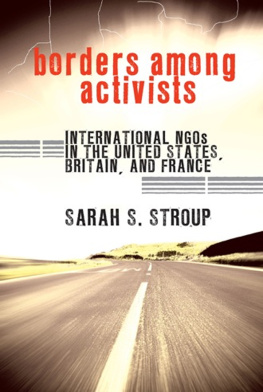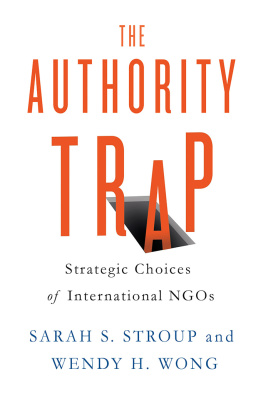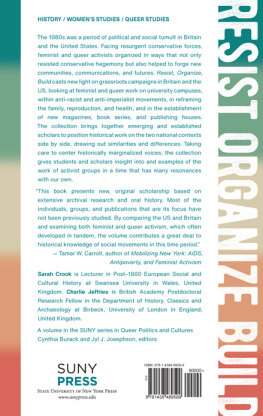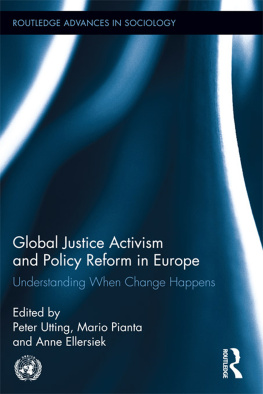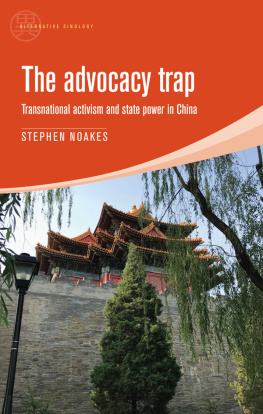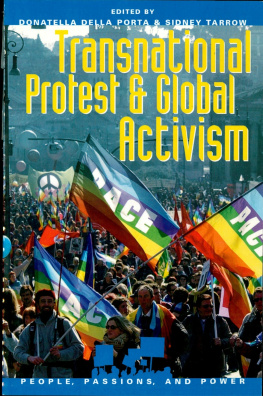Acknowledgments
My words of thanks are insufficient payment to the many people who have made this book possible. Most immediately, my work was made possible by generous and honest activists and analysts in the humanitarian and human rights fields. They remain anonymous, and I remain grateful for their time and help.
Colleagues at many institutions helped move this project from concept to book. At Berkeley, particular thanks go to Steve Weber for getting me thinking about nonstate actors in international relations and to Steve Vogel for a careful eye and always generous advice. Ann Swidler, Chris Ansell, and Vinnie Aggarwal each offered thoughtful attention and insight. At Middlebury, many people have been wonderfully helpful. Thanks to the college, especially Jim Ralph for research funding, and to Kyle Hunter, Michal Micner, and Xiaoxue Weng for their able research assistance. I am also grateful to the following people who read part or all of the manuscript: Michael Barnett, Peter Bell, Erik Bleich, Kateri Carmola, Maggie Clinton, Orion Lewis, Joyce Mao, Sidney Tarrow, Jessica Teets, and Wendy Wong. Parts of this project have been presented at the College of William and Mary, Colgate University, UC Berkeley, and the 2008 and 2009 annual meetings of the International Studies Association; I very much benefited from the comments of those in attendance. In Britain, Stephen Hopgood was particularly generous with his time and helped facilitate several key interviews. Other colleagues have improved my thinking at various stages of this project. Thanks especially to: Naazneen Barma (my evil rival), Jennifer Bussell, Tim Bthe, Thad Dunning, Martha Finnemore, Michael Goldstein, Ken Haig (who suggested the term varieties of activism), Rebecca Hamlin, David Kang, Jeffrey Legro, James Morrison, Amanda Murdie, Kim Reimann, Kaja Sehrt, David Stoll, and Amy Yuen. Finally, I am grateful for the support and careful attention of Roger Haydon and two anonymous reviewers at Cornell University Press, who were instrumental in helping me build a more robust argument.
Family and friends have given love, encouragement, and much-needed perspective. My parents, Robert and Virginia Snip, are incredible role modelsbrilliant, fun, and loving. Many thanks to Katherine Snip, Gerrit Snip, Kathleen and Stephen Stroup, Jason and Sarah Provonsha, Elizabeth Stroup, Sunny Bowles, Kim Keith Berglund, Betsy Querna Cliff, Leslie Plaisted, Amanda Trause Manger, Lucy Buford Ricca, Harrison and Michaela Grubbs, Sean and Jill Walsh, Sarah and Chris Hale, and Nan and Nate Guilmette.
My last words are for those who enrich every one of my days. To John, Madeleine, and Henrythank you for this joyful life.
Introduction
Where Have All the Borders Gone?
On January 12, 2010, Haiti was hit by a magnitude 7.0 earthquake that killed over 200,000 people, opening a devastating new chapter in the troubled nations history. As often happens after such tragedies, developed nations and international organizations convened a donor conference a few months later to discuss Haitis reconstruction and development. Among those that sought to shape the debates were major private relief and development organizations that had long experience in fragile states like Haiti. But they did not all say the same thing, nor did they say it in similar ways. The medical relief organization Mdecins Sans Frontires (MSF) argued that access to health care must remain free, and pressured donors to provide direct financial support to the Haitian government to build the capacity of the state. Oxfam International focused on holding international donors accountable. Oxfam spokesman Philippe Mathieu pointed out that victims of natural disasters have often been promised money that has never materialized, and provocatively argued that this donor conference cannot be a VIP pageant of half promises. Another prominent organization, CARE, emphasized instead the shared goals of private and public agencies. In a series of private meetings in the United States and Europe, CARE diplomatically stated that the global community must make a long-term commitment to Haiti aimed at creating good governance and a more just and egalitarian society.
These three charitable groups had decades of experience in Haiti and all faced the same situation, but throughout the year following the earthquake, each organization focused on distinct aspects of the crisis and used different tactics to make its point. Even as short-term medical care improved through 2010, MSFs reports and field worker testimonies focused on the problems with the earthquake response and continued to demand that the international community provide funding to the Haitian government to support long-term health care for the Haitian people. Meanwhile, Oxfam published a half-dozen research reports in which it made specific and ambitious policy recommendations, including the full disbursement of aid, the cancellation of Haitis $890 million in foreign debt, and the opening of American markets to Haitian agriculture. By contrast, CAREs reports and press releases played up the positive contributions being made on the ground in Haiti, and when new challenges like the October cholera outbreak emerged, CARE delicately called for a joint and long-term effort involving the Haitian government, international donors, and NGOs.

